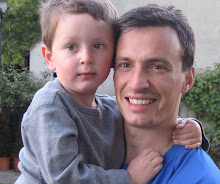Something is happening in the world of philanthropy. Formerly the space reserved for the noble – it is being increasingly colonised by a new breed of smart (often young) business men and women.
These ‘social change agents’ range from the high profile – such as the sports shoe tycoon, Sir Tom Hunter - who has made no secret of his desire to give away $1billion, to the more discrete such as the anonymous Arab Sheik who recently gave the government of Bangladesh over $3billion to help the country recover from recent floods.
What these converts from business have in common is a recognition that commercial thinking and practice has a central role to play if this generation is to do a better job at sharing resources, empowering the vulnerable and protecting the planet.
We all know the trends are alarming. By 2030, the world’s population will have increased by another third – to 9 billion. Intra state fighting (which now far outstrips conflicts between nation states) is continuing to rise as the unholy scramble for the world’s resources intensifies. As geologists issue warnings that we are touching the limits of the world mineable assets, the relentless demand for gas, oil and coal continues unabated. In China, there are currently a modest 37 million vehicles in circulation. By 2030, this is predicted to increase to a staggering 270 million. All of this set against the reality that the ‘easy oil field’ finds of the Middle East are not repeatable.
In the next few years, $100 barrels of oil could seem cheap. Dfid predicts that we will see the price of oil rise to $150 per barrel in the next three years.
Inevitably, as basic commodities become more expensive, it is the poorest who suffer the most. Even today, 554 million people are without access to energy sources. What chance do they have of claiming their energy rights if trends continue? 85% of India continues to live on less than $2 per day – that in a country whose economic growth is the envy of all bar China. With these disparities, it may be that certain communities or even countries may not get any energy supply at all.
There is a fundamental and glaring discrepancy between the language used by international leaders in their desire to cut Co2 emissions while at the same time facilitating a massive demand for energy – fuelled by an unquestioned commitment to maintain economic growth.
Many ‘new philanthropists’ have little time for government quangos – they are also scathing of a voluntary sector that has failed to deliver meaningful progress with the $100billion that is passed its way each year. Their message to charities is forthright, if not pugnacious: stand aside – you’ve had a go at this – now let someone else try.
Understandably, there are those in the not for profit sector who view the new kids on the block as a threat. They would rather that these individuals worked through traditional structures and at least learnt from the sectors’ decades of lessons on the pitfalls of development. The fear is that the brash ‘business knows best’ attitude belies the complexity involved in bringing real social change.
However, if we are to meet the challenges of tomorrow, an inclusive movement which harnesses the talents and resources of every sector of society is the greatest challenge. That takes a quality of leadership rarely seen – to use the language and win the confidence of those outside your natural orbit. The synergies between voluntary and commercial organisations are only just now being explored. Commercial companies are talking to large NGOs about developing business models designed to create jobs in the poorest communities while still making a profit to ensure real sustainability.
Whether the philanthrocapitalist model gains traction will owe much to the extent to which old stereotypes and prejudices can be laid aside in favour of genuine collaboration. Currently the worlds are often too far apart to enable a meaningful conversation.
Thursday, May 15, 2008
Subscribe to:
Post Comments (Atom)




No comments:
Post a Comment